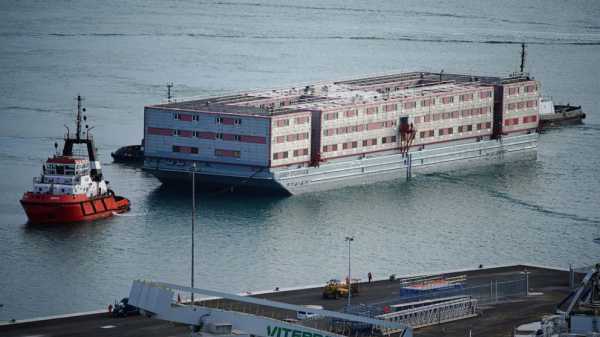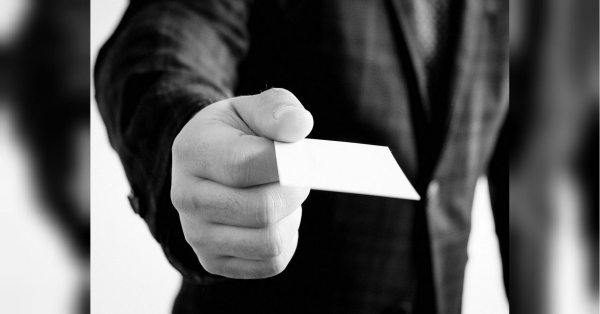
LONDON — A vessel that will house up to 500 asylum-seekers arrived Tuesday in England after Parliament passed its long-debated bill to curb migration.
The barge Bibby Stockholm was pulled by a tug into Portland harbor, off the southwest coast of England, after the government’s controversial legislation overcame resistance in the House of Lords and was passed.
The vessel and the bill are both parts of Prime Minister Rishi Sunak’s strategy to stop migrants from making risky English Channel crossings in small boats. The legislation will become law after receiving the assent of King Charles III.
The Conservative government has pledged to “stop the boats” — overcrowded dinghies and other small craft that cross from northern France carrying migrants who hope to live in the U.K. More than 45,000 people crossed the Channel to Britain in 2022; several died in the attempt.
The bill is intended to deter those journeys and will prevent migrants from claiming asylum in the U.K. if they arrive illegally. Under the legislation, those caught will be sent back home or deported to another safe country and banned from ever re-entering the U.K.
The government planned to send some of those who arrive without authorization to Rwanda, but last month the Court of Appeal ruled it was illegal. The government is appealing the ruling to the U.K. Supreme Court.
Sunak cheered the passage of the bill but said the government must prevail at the higher court for the law to function properly.
“This is an important part of our work to stop the boats. Obviously it needs to be paired with the Rwanda partnership," said Sunak's spokesman, Max Blain. "It’s right that we have this power in place so it can be utilized swiftly and we remain confident we will be successful in the challenge in the Supreme Court.”
The bill was approved after an all-night tussle Monday between the House of Commons, where the governing Conservatives have a majority, and the unelected House of Lords, which can amend but not block legislation.
Elected members of Parliament defeated amendments that would have included protections for modern slavery and child detention limits.
The United Nations human rights and refugee chiefs said the bill was at odds with Britain's obligations under international law and will have “profound consequences” for people seeking protection.
“For decades, the U.K. has provided refuge to those in need, in line with its international obligations — a tradition of which it has been rightly proud," said U.N. High Commissioner for Refugees Filippo Grandi. "This new legislation significantly erodes the legal framework that has protected so many, exposing refugees to grave risks in breach of international law.”
The U.N. warned that the law would even deny protection to children with legitimate claims who are traveling without parents — some of whom might have survived human trafficking.
Simon Murray, the undersecretary of state for the Home Office and member of House of Lords, had urged the peers to pass the bill, saying the U.K.'s asylum system was overwhelmed and taxpayers were paying 6 million pounds ($7.8 million) a day to house asylum-seekers.
“If people know there is no way for them to stay in the U.K., they won’t risk their lives and pay criminals thousands of pounds to arrive here illegally," Murray said. “It is therefore only right that we stop the boats and break the business model of the criminal gangs exploiting vulnerable people."
The Bibby Stockholm is expected to start housing people in two weeks. Its arrival Tuesday at the port inspired two groups of protesters opposed to it.
Some locals are worried about the impact new arrivals will have on their town. A second group, Stand Up to Racism, said it welcomed refugees but objected to what it calls a “prison barge.”
Sourse: abcnews.go.com






